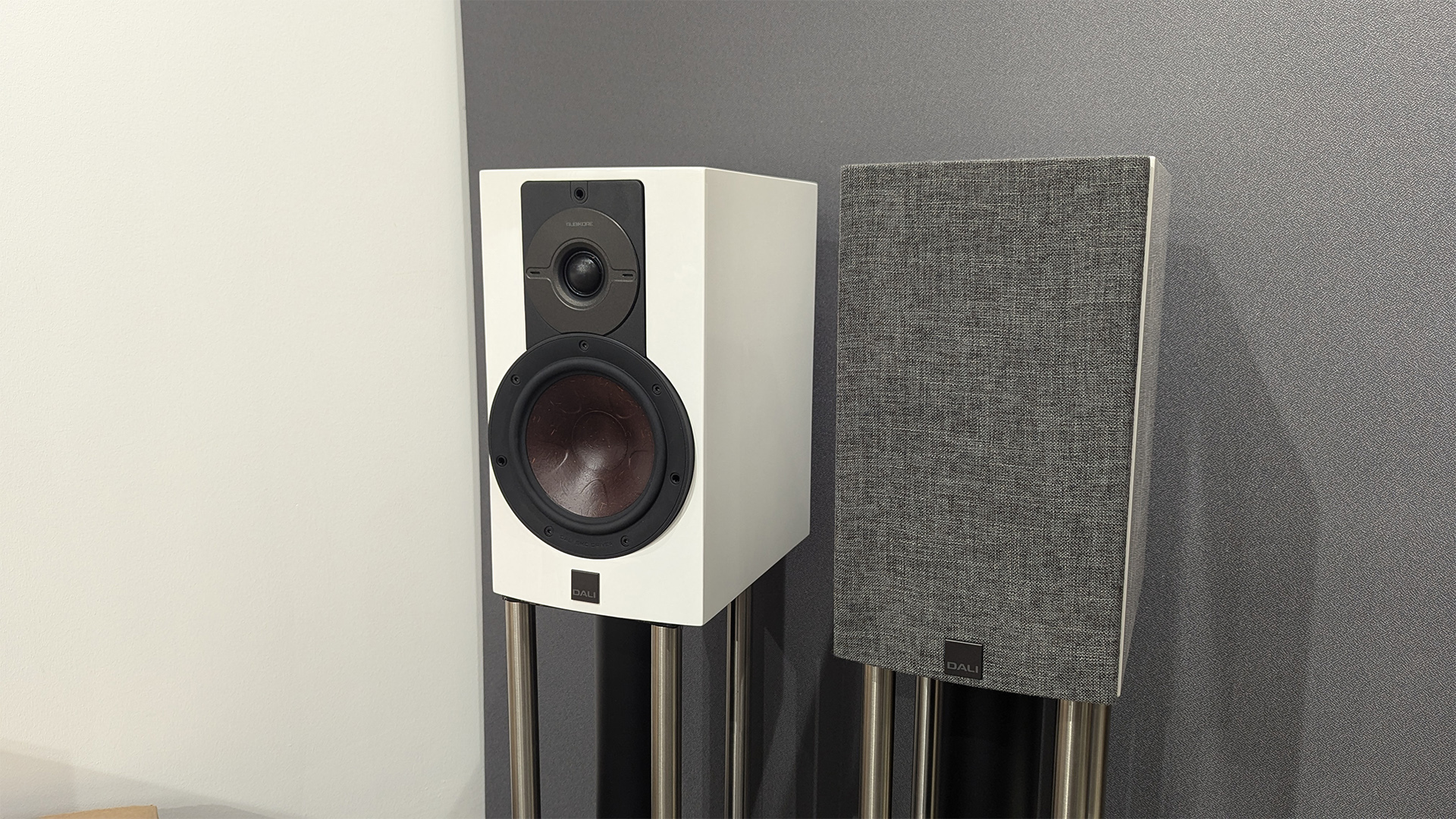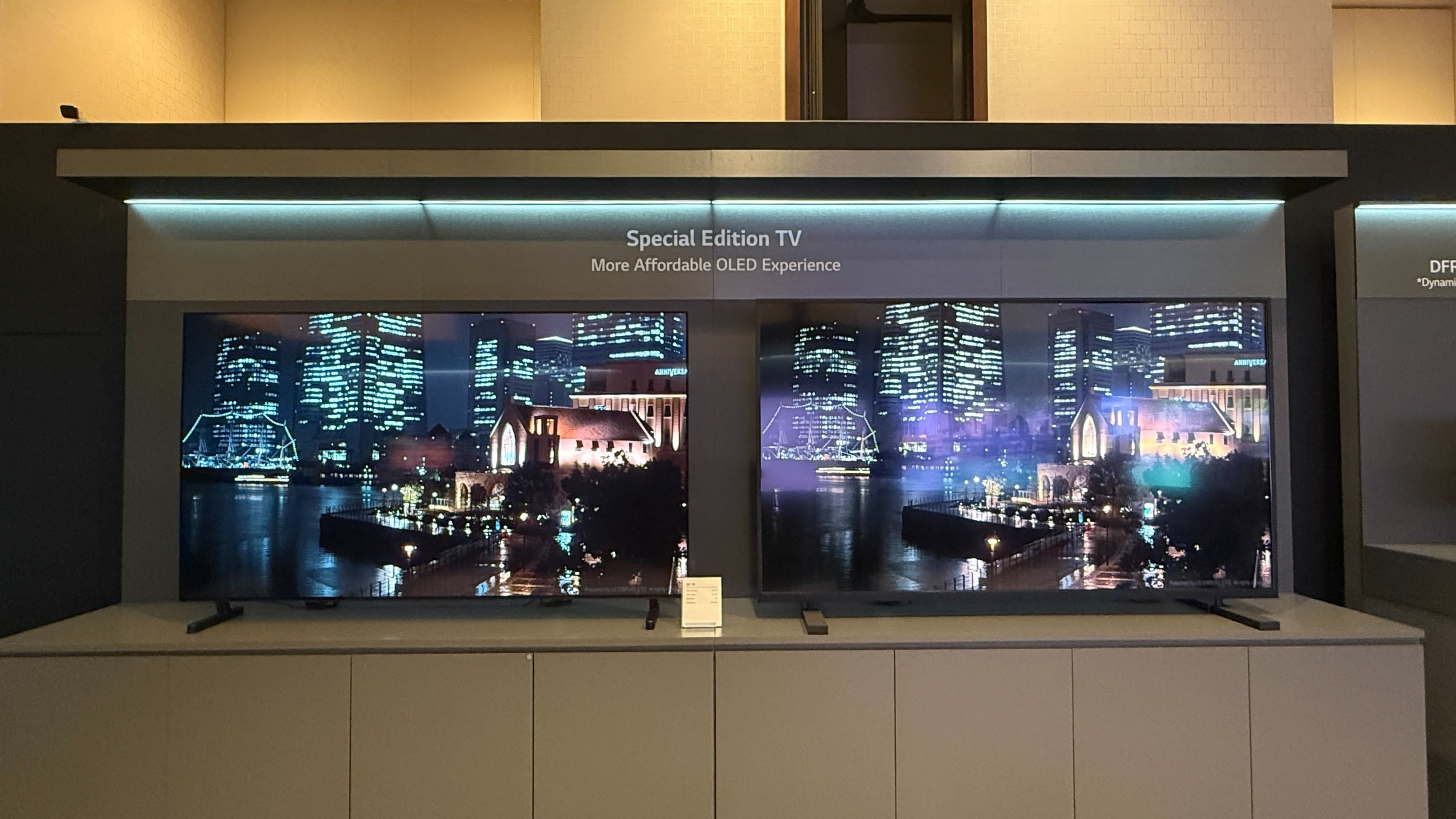What Hi-Fi? Verdict
As entertaining as they are informative, the formidable Rubikore 2 deliver a good time, and then some
Pros
- +
Class-leading insight
- +
Compellingly lively character
- +
Rhythmically blessed
Cons
- -
Excitable treble requires careful system matching
Why you can trust What Hi-Fi?
When a brand welcomes a new product into the world, it helps if it can associate it with existing quality. Indeed, if that product can piggyback on something renowned or desirable, it gets a rosy start in life before it has the chance to make its own mark on the world. So it makes perfect sense for Dali to tie the name of its latest speaker series to that of its flagship and irrefutably high-end pair of Kore loudspeakers.
Since a pair of Dali hi-fi speakers last entered our test rooms, the brand has entered a new era of engineering we can only really refer to as ‘kore’. First came the aforementioned Kore reference speaker in 2022, followed by the step-down Epicore model a year later, and now, beneath both them and the veteran Epicon range (which we can only hope will eventually make way for a fleshed-out Epikore series), we have a fully-fledged Rubikore range. It succeeds the Rubicon range to which talents such as the Rubicon 2 belonged.
It’s with that very model’s successor, the Dali Rubikore 2, that we have our first taste of what this new ‘kore’ era is all about. All told, the two-way standmounts give us more of a nibble than a mouthful, akin to the first bite of a shared starter taken on a first date, as opposed to the cramming in of a whole pizza slice on the tenth. While they boast technology inspired by The Ultimate Dali Speaker 32 times their price, other members of the Rubikore range have even more.
Design & build
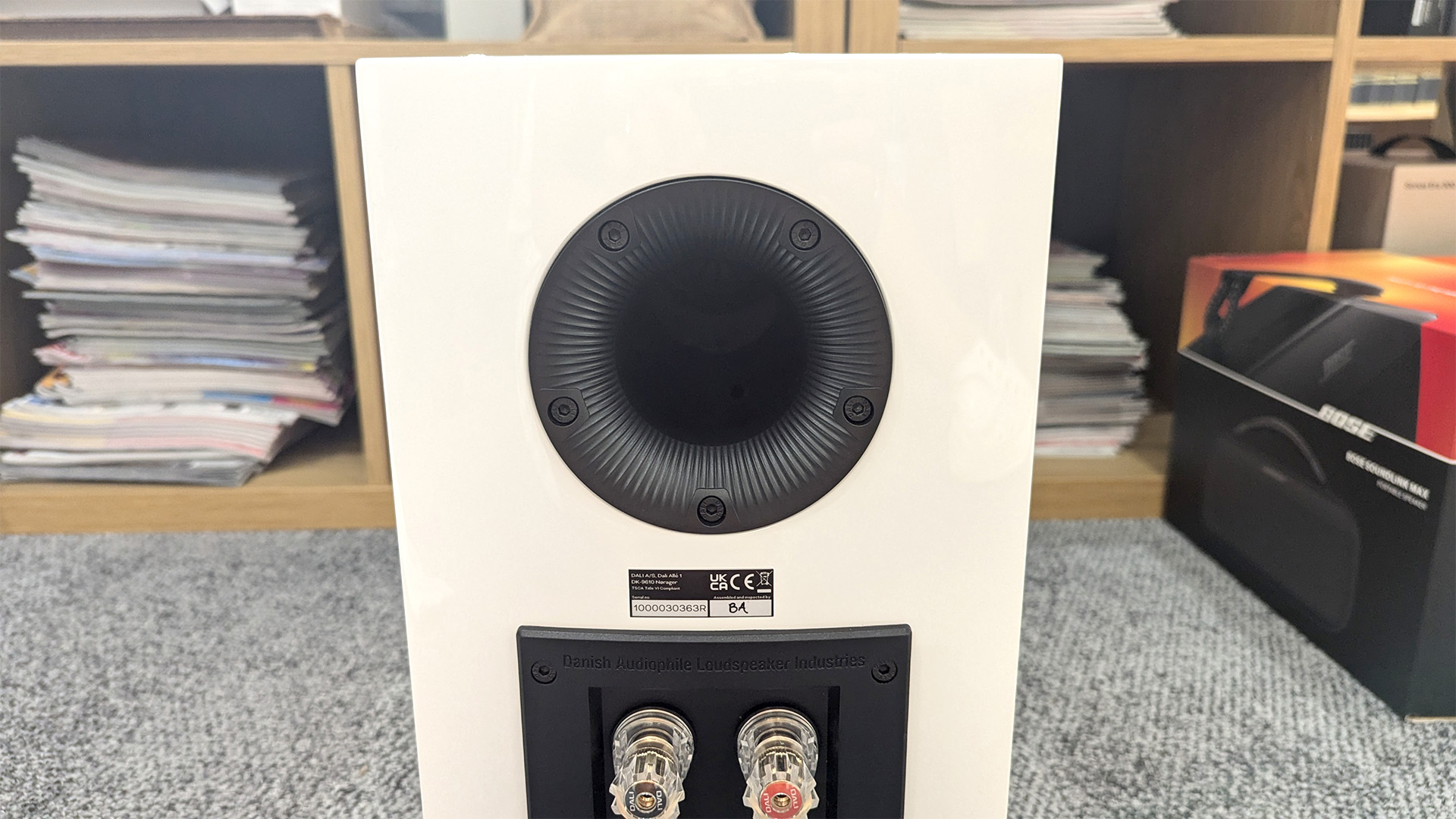
The Rubikore 2 features a 16.5cm mid/bass driver which uses Dali’s paper and wood-fibre ‘Clarity Cone’ to help with midrange clarity, and incorporates the company’s patented, long-used SMC (Soft Magnetic Compound) magnet material technology, designed to reduce distortion, flux modulation and eddy currents in the double-magnet system.
While Dali’s Rubikore range introduces a brand-new hybrid tweeter design derived from the Kore’s Evo-K Hybrid Tweeter (itself an evolution of the Hybrid Tweeter used in Dali’s established Epicon range), all models bar the Rubikore 2 (the 6 and 8 floorstanders, Cinema centre channel and On-Wall speaker) get it. The Rubikore 2 do feature the hybrid unit’s new 29mm ferrofluid-free, low-loss dome design, but without the accompanying 17 x 45mm planar magnetic tweeter. This follows the previous Opticon and Rubicon series, where Dali first decided to save the hybrid tweeter system for the floorstanders – aside from the added cost involved, the hybrid unit’s extra size made for a standmount cabinet that, in the brand’s eyes, was overbearingly tall and thin-looking.
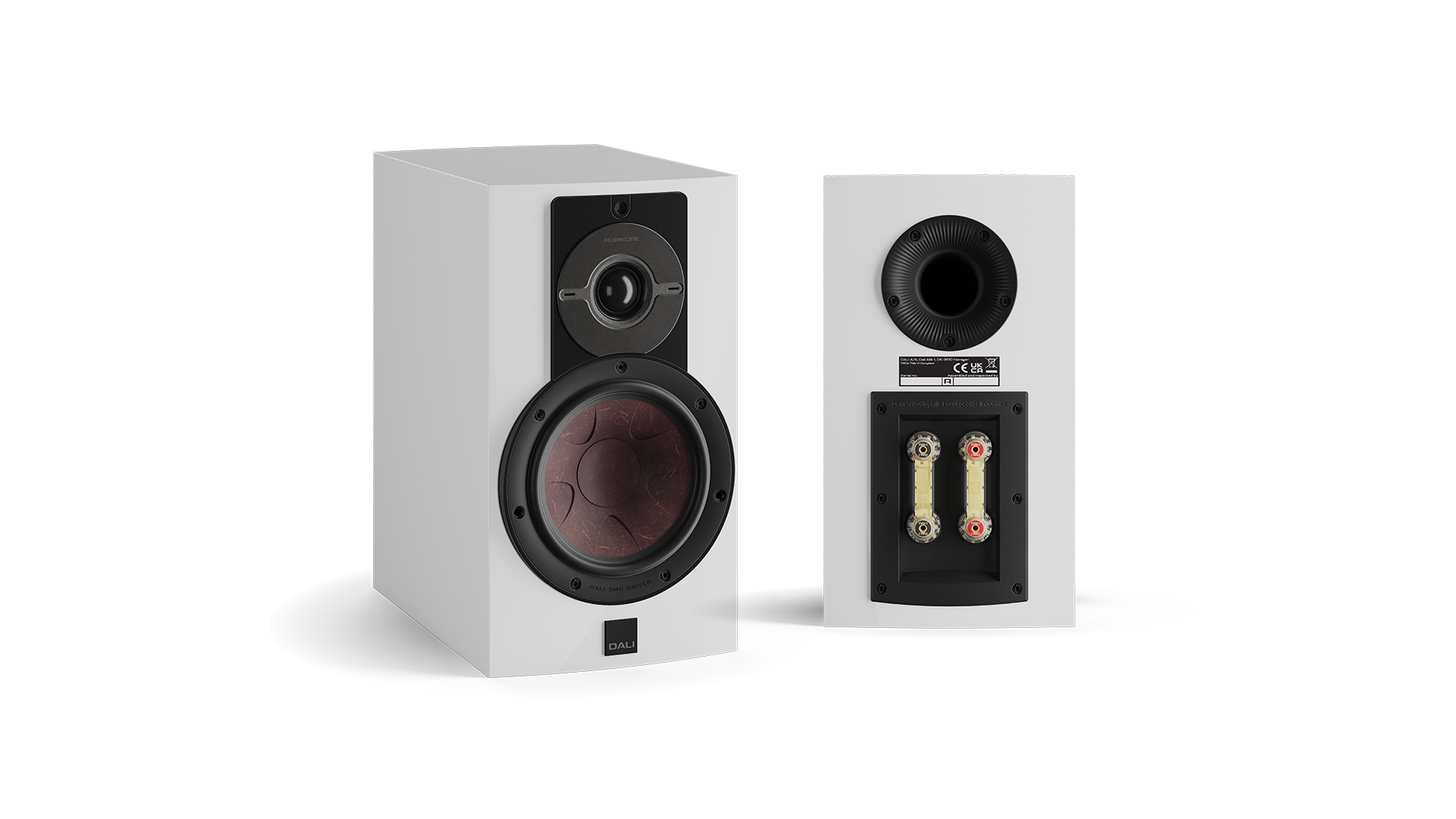
Type Standmount
Drive units 29mm soft dome tweeter, 16.5cm paper/wood-fibre SMC driver
Ported? Yes, backward-firing
Bi-wire? Yes
Impedance 4 ohms
Sensitivity 87dB
Dimensions (hwd) 35 x 19.5 x 33.5cm
Weight 9.5kg
Finishes x 4 (high-gloss white, black or maroon; walnut veneer)
The Rubikore 2 miss out on its floorstanding siblings’ signal-loss-reducing ‘SMC Kore’ inductors within their crossover circuits, too, but their crossover design does have in common the range’s use of high-end Mundorf capacitors. Elsewhere, a ‘Continuous-Flare’ bass reflex port aims to maximise low-end performance, while two sets of speaker terminals allow for bi-wiring or bi-amping your system if you so wish.
As you can see from the accompanying images photographed by our reviewers, our review pair came in high-gloss white lacquer, although black and maroon colours, plus a natural walnut veneer, are available too. Anyone familiar with Dali speakers will instantly recognise the Rubikore 2 as such when their grilles are removed, what with the red colouration of their trademark wood-fibre mid/bass unit, baffle-hogging driver surrounds and glossy cabinet treatment. ‘Handsome’ is the adjective that sits on the farthest edge of our tongues, and ‘safe’ and ‘traditional’ aren’t far away from it either. We mean all that in the nicest way possible; Dali is a mature company with a mature aesthetic that will likely have as many fans today as it did decades ago.
The latest hi-fi, home cinema and tech news, reviews, buying advice and deals, direct to your inbox.
The Rubikore 2 cost a few hundred pounds/dollars more than their closest rivals, the Award-winning KEF R3 Meta, and in our minds they look and feel the dearer speakers of the two by at least that price margin. So do they sound like it too?
Sound
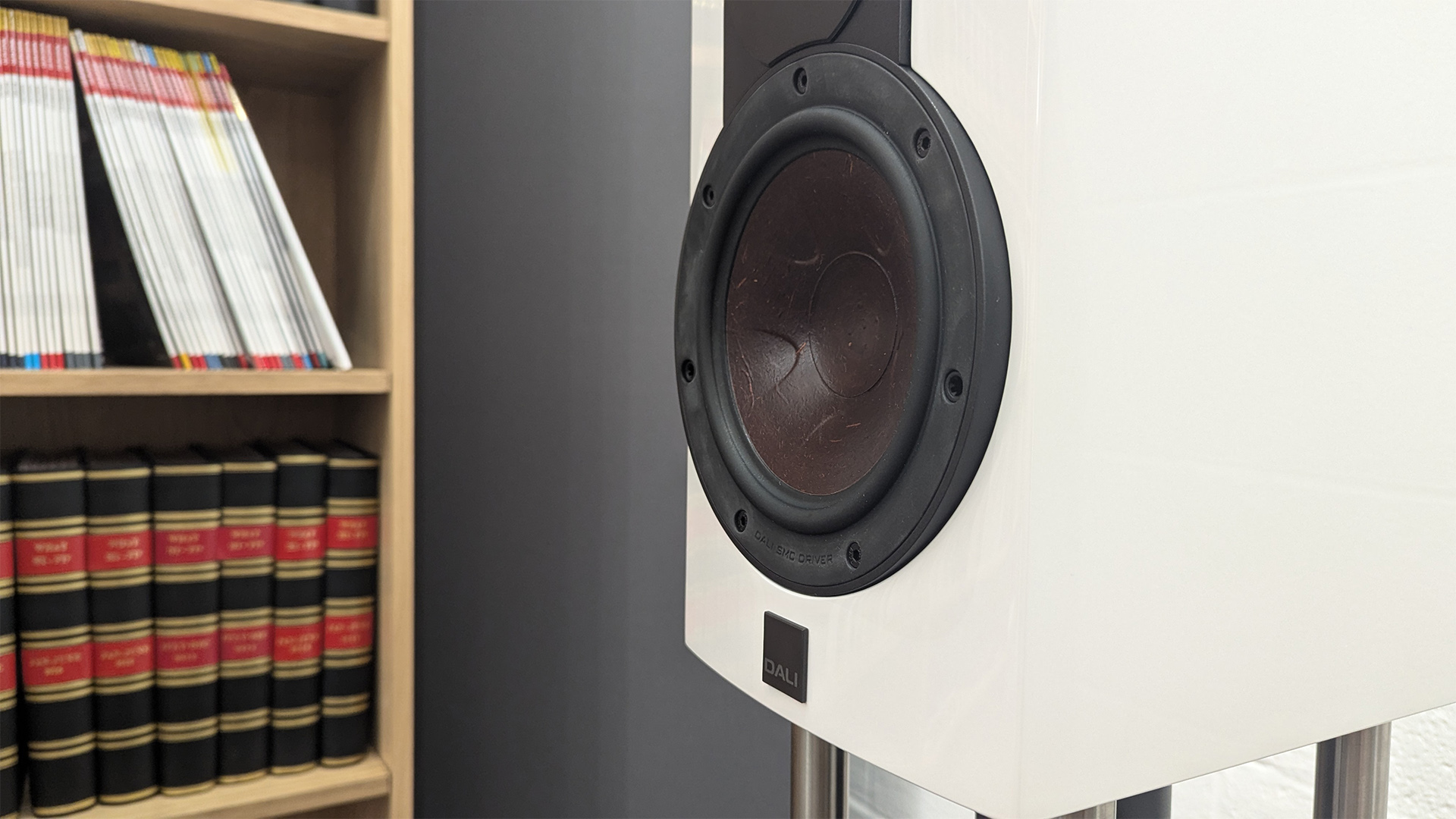
To find out, we initially drove the Dalis with the PMC Cor integrated amplifier, connected to a Naim Uniti Atom Headphone Edition streamer, and after some mid-listening experimentation settled them around 20cm from the rear wall, firing straight ahead as opposed to toed-in – the angle Dali designs have long favoured.
We say ‘initially’, because after hours of listening, and once a lack of running-in time could be eliminated as the cause, it became apparent that the Rubikore 2’s balance would benefit from a smoother-sounding amplifier. Indeed, the Rubikores’ treble is as forward as they come before they tip into unacceptable levels, so careful partnering is required so that their quantity and nature remain on the cusp, and not over the threshold into distracting. You will want an amplifier with the fullness and solidity of, for example, the Arcam A15 or Naim Nait XS 3, which both prove better suitors than the neutral PMC when swapped in.
That more suitable match made, we more than happily play Four Tet’s cymbal-heavy Three Drums numerous times. For more than half of its runtime, the eight-minute track has ever-present cymbals within a drum loop that frames various synth melodies, so if a product’s high-frequency performance can pass that song, it can pass any. There’s no shortage of tangible texture to the instruments, which moves with pace and purpose so as not to surrender the limelight entirely to the dynamic synths.
At the other end of the frequency spectrum is a bass that, in similar fashion to the treble, is lucid, defined and agile. Play Christine And The Queens’ Tears Can Be So Soft and the Rubikore 2 dig deep to get right under the anchoring rumble, to the point where the vibrations are enough to tickle our feet when we up the volume. That undertow isn’t just a blanket of bass either, the scrupulous Dalis able to identify and ride the oscillating waves.
And that midrange between them? That’s the star of the show, actually. Sadness As A Gift by Adrianne Lenker of Big Thief is a jangly and lush folk delight that predominantly showcases her gorgeous organic vocals alongside an utterly devastating violin accompaniment, the heart, flesh and blood of which are ably communicated by the attentive Dalis. They soar and sink seemingly without constraint in the spacious and dynamically expressive presentation, and the warmth and richness of the production is laid bare too. When Nick Hakim’s shadow vocal peeps out underneath, the disparity in his tone and inflections are easy to discern, such is the Rubikore 2’s perception.
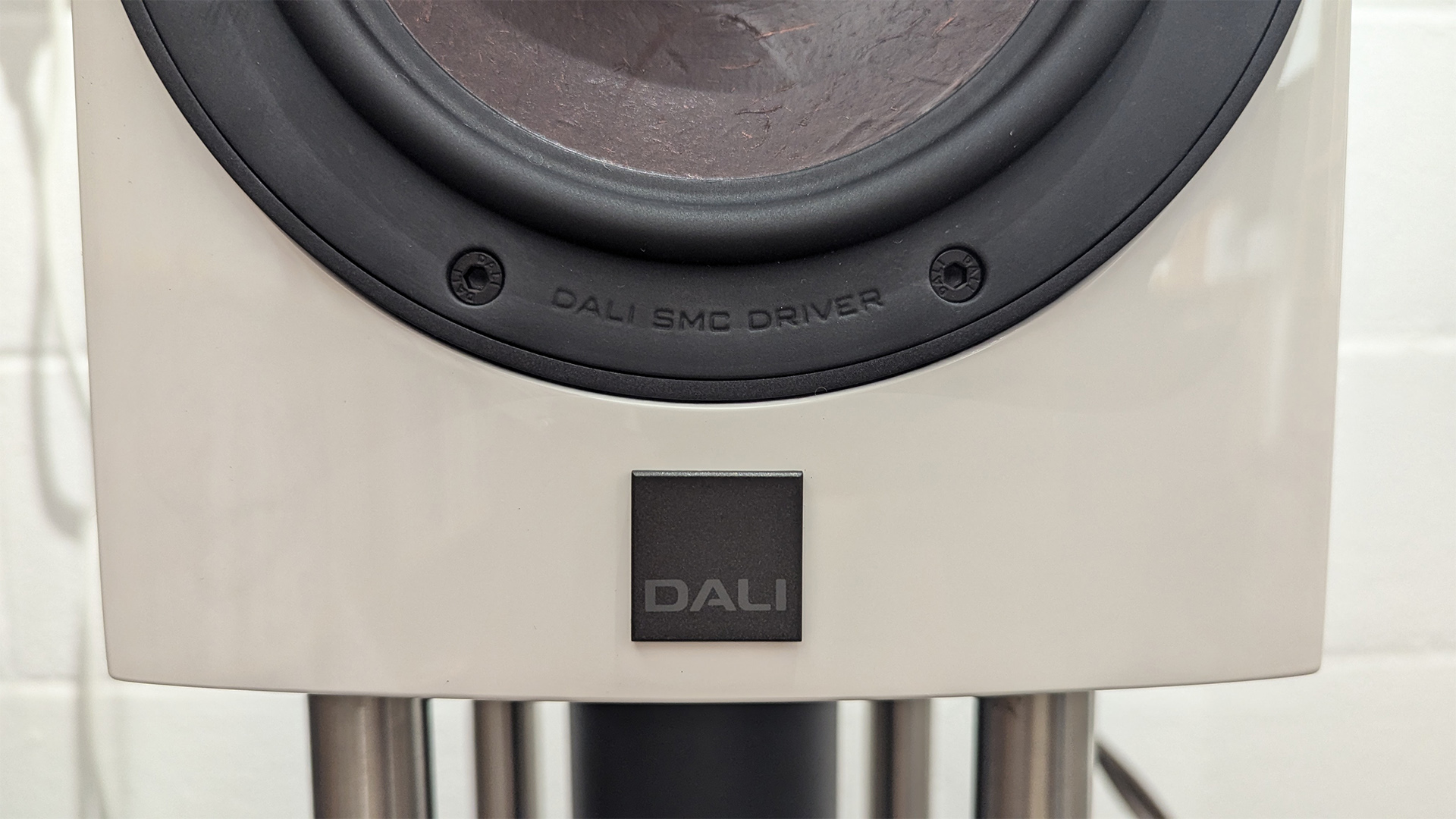
But enough of the individual details; how do the speakers present themselves as a whole? In a nutshell, the Rubikore 2 confidently walk, to the point of a swagger, the fine line between indulging in a likeable personality and being careful not to imprint much on the signal. Lively but honest, fun yet disciplined, they strike the balance between being entertaining and informative with a runaway success.
A decade ago (jeez, doesn’t time fly), we called the preceding Rubicon 2 “seriously entertaining” and “expressive and enthusiastic”, so we’re pleased to hear Dali has clung like ivy to these sonic traits over the years.
These are very present speakers – they’re in the room, interacting with everyone and having a good time, truly in their element when fed something melodically upbeat and with a standout vocal, such as Young Jesus’ MOTY or, to offer a more commercial example, Taylor Swift’s I Can Do It With A Broken Heart.
Tracks that live and breathe on their rhythmic craft, such as Explosions In The Sky’s post-rock masterpiece Moving On, present the Dalis with a workout they appear to thrive on. The chiming keyboard, wild percussion and melodic electrics form a latticework of heady proportions, but the Rubikore 2 take it all in their stride, following the piece’s quiet/loud extremities, as well as the less dramatic ebbing and flowing dynamics, to the letter. Each instrumental strand has purpose in the mix, and the climaxes come through with the conviction of a court judge.
When it comes to comparing them against the current class leaders, we miss the KEF R3 Meta’s bigger soundstage and harder-hitting punch, but those relative losses pale into comparison when compared with the Dalis’ more naturally rhythmic cohesion and gains in outright subtlety.
If we needed any further confirmation of the Dali’s greater transparency, we get it when we eventually switch back to the higher-end PMC amplifier. We can hear more of the Cor’s sonic gains over the more modest Naim amplifier through the Dalis than we can through the KEFs.
Verdict
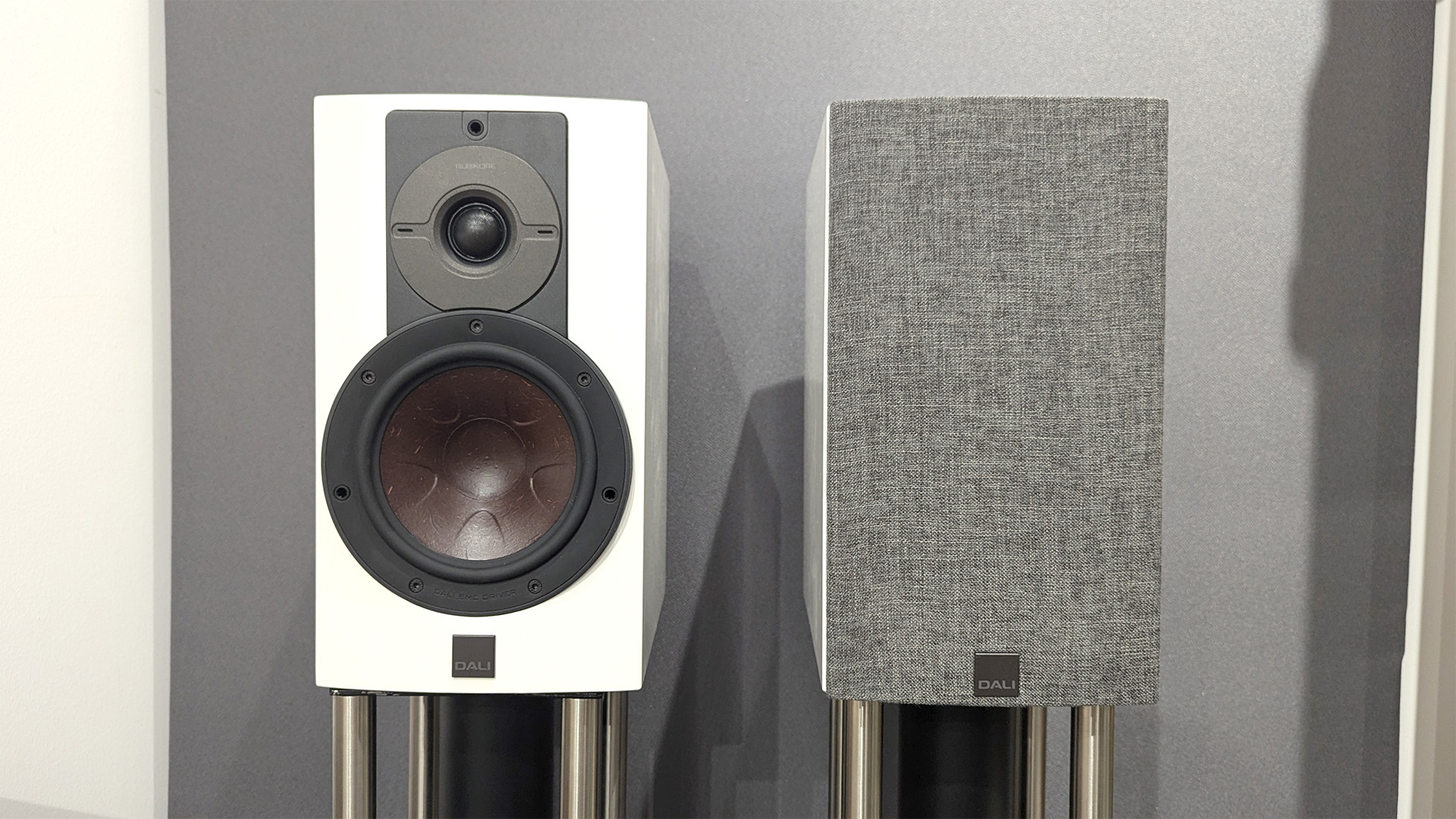
The Rubikore 2 offer more of a quick previewing peek at the Dali’s pinnacle ‘kore’ engineering than an access-all-areas tour, but their talents just go to show the potential of the current and future – and lest we forget, higher-end – ‘kores.
The Rubikore may have rode on the trickle-down technology coat-tails of their Kore and Epicore siblings when they were first launched at this year’s Munich High End show, but now they are here and have made their own indelible mark on the hi-fi speaker world. Fantastic effort, Dali.
First reviewed: September 2024
SCORES
- Sound 5
- Compatibility 4
- Build 5
MORE:
Read our review of the KEF R3 Meta
Also consider the ProAc Response D2R
Best bookshelf speakers: top standmounts for every budget tested
What Hi-Fi?, founded in 1976, is the world's leading independent guide to buying and owning hi-fi and home entertainment products. Our comprehensive tests help you buy the very best for your money, with our advice sections giving you step-by-step information on how to get even more from your music and movies. Everything is tested by our dedicated team of in-house reviewers in our custom-built test rooms in London, Reading and Bath. Our coveted five-star rating and Awards are recognised all over the world as the ultimate seal of approval, so you can buy with absolute confidence.
